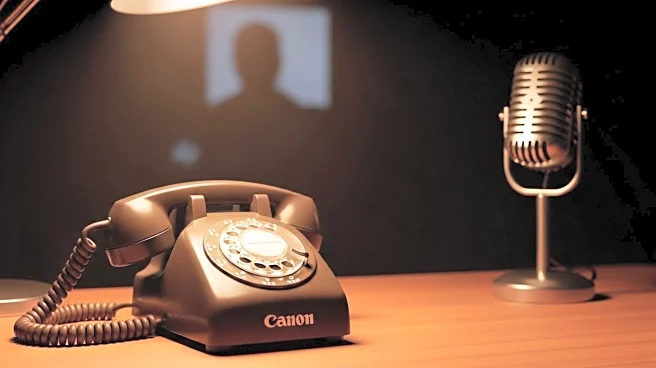What is the story about?
What's Happening?
A long-lost interview with John Lennon, conducted by DJ Nicky Horne 50 years ago, has been rediscovered and is set to be aired on the eve of Lennon's 85th birthday. In the interview, Lennon expressed concerns that the US government was tapping his phone due to his anti-war activism. The interview was originally conducted in Lennon's New York apartment, where he shared his suspicions of being monitored by the Nixon administration, which he had sued over illegal wiretapping. Lennon also discussed his solo album 'Walls and Bridges,' initially considering discarding it until persuaded otherwise by friends. The interview provides insights into Lennon's life and his perception of being under surveillance.
Why It's Important?
The airing of this interview sheds light on the historical context of government surveillance during the Nixon era, particularly targeting public figures involved in activism. Lennon's fears of phone-tapping highlight the broader issue of privacy and government overreach, which remains relevant today. The interview also offers a personal glimpse into Lennon's life and creative process, enriching the cultural understanding of his legacy. For historians and fans, this rediscovery provides valuable insights into the challenges faced by artists during politically turbulent times.
What's Next?
The interview will be broadcast on Boom Radio, allowing listeners to hear Lennon's own words and reflections. This airing may prompt discussions on historical government surveillance practices and their implications for civil liberties. It could also lead to renewed interest in Lennon's activism and music, potentially influencing contemporary artists and activists. The broadcast may inspire further exploration of archival materials related to Lennon and other figures from the era.
Beyond the Headlines
The interview's rediscovery raises questions about the preservation and accessibility of historical media. It underscores the importance of archiving and the potential for uncovering significant cultural artifacts. Additionally, it highlights the enduring impact of Lennon's activism and music, which continue to resonate with audiences worldwide. The ethical considerations of government surveillance and its impact on personal freedoms remain a pertinent issue, inviting reflection on current practices.















